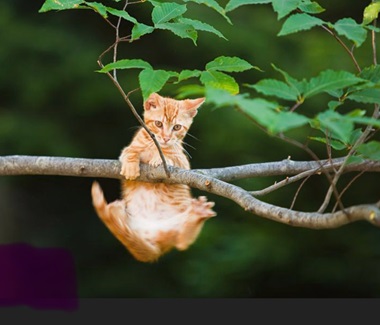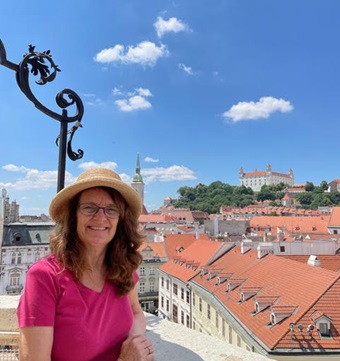 We like to say that as Christians, as kingdom people, we live in the ‘already, and not yet.’
We like to say that as Christians, as kingdom people, we live in the ‘already, and not yet.’
The kingdom of God is at hand – already we are saved and set apart, being sanctified; we repent of sins, follow Jesus, join in worship, pursue justice, love our neighbours, and in so doing experience transformation.
And not yet – our faith is characterized by longing. We long for justice, healing, reconciliation, peace, the Shalom we have glimpsed or intuited; we long for the day when every tear – the tears we now shed – will be wiped away.
Each day we awake in the Kingdom-Already, and lie down to sleep again in the Kingdom-Not-Yet. This formulation is true, and it makes some sense of the dissonance we so often experience.
The already-not-yet framework helps us orient ourselves when we are disoriented by disappointment, disaster or tragedy. When we feel as if the bottom has dropped out, our expectations and hopes dissolved in an instant or eroded over time, the kingdom, already and not yet, can be a rope to grab and hold.
Yet often we find ourselves swinging between hope and despair, dangling in uncertainty. Profound, nagging uncertainty may be a universal experience, known by those who perceive and pursue God from within the seeming chaos and by those for whom a loving, omnipotent and personal God before, amid and beyond our present experience seems like wishful thinking.
Dangling
Perhaps this week we have felt ourselves dangling over particular uncertainty, as an election rumbles and roars just south of us. As a dual citizen, an American and a Canadian, I feel an apologetic culpability in relationship with my Canadian countryfolk and a peculiar guilt in relationship with my American countryfolk because living in Canada, I suffer less anxiety than they.
I write these words knowing that by the time they are read, events will have unfolded that will leave us in new uncertainty, the contours of which I can only imagine today.
We hold tight, tending to believe uncertainty is an aberration, a temporary state until we can get our bearings and return to the solid ground of certainty. As if uncertainty is something to solve, an existential math problem to be worked out. Or this feeling of uncertainty is something new, imposed by nefarious technology or unprecedented circumstances upon our otherwise stable society.
With only a moment’s reflection – probably more quickly than you read the last sentence – it becomes obvious this is not the case. Previous generations inhabited uncertainty as great as our own, uncertainty born of disease, political upheaval, warfare and social change. Our ancestors, both ancient and recent, navigated in ambiguity no less than do we.
Ambiguous times
So how did they, and how will we live well in uncertain, ambiguous times?
Flying, which I have done frequently for more than two decades, I have often felt terrified. Rehearsing safety statistics and laws of aerodynamics does nothing to stop my heart’s racing while the tiny metal canister in which I am strapped hurtles through the sky. No amount of worrying helps. Only when I breathe deeply and stare far out the window do I find relief.
At what can we gaze to find relief and relax into our own turbulent journeys now?
This is one of those Sunday school moments when the answer seems as if it should be ‘Jesus,’ and I have been advised more than once to imagine Jesus’ giant hand underneath the plane, superman style. But then when the plane lurches or jiggles, it’s hard not to imagine that Jesus is having a little fun at my expense, and that is decidedly unhelpful.
Maybe we would benefit from casting our gaze toward the many saints of old and contemporary saints, too. Suggesting we do just that, in a reflection for All Saints’ Day, Anglican priest Lucy Winkett writes:
We should banish from our minds any images of ossified stained-glass unreachable figures and inhabit instead the electrifying teaching of Christ that overturns priorities, upturns established orders and invites believers to join the communion of saints.
This communion is irreducibly baked into the life of church. Into the winter months bursts a riot of colour, noise, chatter, robes, bravery beyond belief, courage beyond measure – the communion of saints – the stories of human lives lived to the full; the awkward squad, the outspoken lot, the colossally unwise-if-you-want-to-stay-alive crowd.
Sometimes courageous or foolhardy, obstinate as well as inspiring, saints are human beings who somehow have an irreducible desire to travel towards the centre of things, close to the dwelling place of God.1
Contemporary saints
Banish images of unreachable figures! Phew. The communion of contemporary saints into which I am invited and from which I draw consolation and inspiration includes a friend enduring a horrific illness, another who was unjustly fired by his church, four more whose children battle mental illness, another who tries not to be fearful when her life is objectively frightening. And then there are my colleagues and their families who immigrate or return to politically and physically insecure assignments in places like Ukraine, Mongolia and Israel.
My sainted squad swings wildly in the tumultuous, ambiguous times in which we live. My squad doesn’t hover above the fray, but endures the battering of the real world and bears scars.
‘Saints’ is one word for these fellow followers; “contemplatives’ is another, suggests Eugene Peterson:
Contemplative is not an elitist category of Christian. . . . We need an unpopular word that kicks off some awareness of what is odd in those who live by faith in Jesus Christ, a verbal tool that calls attention to what is distinctive in this word-of-God-formed life.
And although Peterson defines contemplatives as people “submitting to the biblical revelation, taking it within ourselves, and then living it unpretentiously,” he also contends “Contemplatives fly off the handle, make bad judgments, speak out mistakenly and regret their words, run stoplights and get speeding tickets.”2
Navigating uncertainty
Sound like anyone you know? If contemplative sainthood is so familiar, how will gazing upon and counting ourselves among the communion of saints help us navigate uncertainty?
Recognizing that those whom we call saints are just like us saves us from the illusion that life could or should, by our doing, be any less uncertain; that if we were to pray harder, attain greater holiness, produce more fruit of the spirit, the universe would fall into order. It sounds nutty, but most of us believe this just a little bit.
In my most fearful flying days, I would sit tight and concentrate in an effort to keep the plane in the air by sheer force of will. When my husband flew with me, unbothered by turbulence, he would chat away unaware of my effort, then noticing my distress he would turn up the chatter hoping to distract me. “Shh,” I would order. I had to concentrate to keep the plane in the air. To my chagrin, no pilot ever thanked me for my help as I exited the plane.
It sounds ridiculous, but it felt like reality. It’s magical thinking. We are prone to succumb to magical thinking when we can’t tolerate feeling out of control. As Christians we might subtly slip into magical faith and magical prayer, believing our ‘better’ behaviour or more fervent faith will cause our world to become orderly, outcomes will be to our liking.
Am I implying that we should abandon prayer and our intention to live holy lives? Absolutely not. But we should abandon our false confidence, often veiled by faith language, that asserts we can control circumstances. Remembering our fellow flawed saints reminds us that God is at work in the real unburnished lives of those who surround us, living and dead.
Sainthood isn’t about shimmering otherworldliness. It’s about real life in the real and messy world we inhabit. To welcome the faith of our fellow saints we must let go our naïve faith, faith centred on us and our performance. It’s not about us.
Liturgical support
How have saints inhabited the real world well for centuries? One time-tested means is liturgy. When our own magical prayers fail us, we can join the saints of old and of today in praying the lectionary or prayer book. Prayer books and services abound.
There are apps, such as the one for which Lucy Winkett writes, for those of us so inclined. We find our own steady voice amid the maelstrom when we match our voices to those of others. Like the communion of saints, the prayers of saints are received not created by us. We don’t have to go looking far or make much up to join in fellowship.
And this is a fellowship of those who have made their home in mystery rather than certainty. One way to navigate uncertainty is to quit insisting upon it. The communion of saints helps us here too. Like Jesus, many saints are poets. Poetry resists resolution, welcoming wonder and making space for paradox. Poetry makes room for the skeptic and the steadfast, for the faithless and the faith filled.
To live well in a kingdom already being fulfilled while longing for what is not yet realized requires us to embrace ambiguity, uncertainty, to pray unanswered prayers. Maybe there is no rope to grab hold. Perhaps we need to be held, held in communion with those living now and those who have lived and died longing for a day yet to be.
Even after the election
My son tells me he hears anxiety in the middle schoolers where he is a student teacher in the United States. As a social studies teacher in a secular school, what reassurance can he offer these kids? His supervising teacher, a veteran of over 30 years, tells the class, “Whatever happens, we will be here for you Wednesday after the election.”
It’s Thursday and whatever happened yesterday, Mr. Osborn and Mr. Colby are there for the kids. As saints, not superheroes, this is what we offer: we can’t steady the plane as it soars through the storm, but we can commit to be with one another in its midst.

Susie Colby
1 Lucy Wickett, Reflections for Daily Prayer, Church of England, November 2, 2024
2 Eugene Peterson, Eat This Book: Conversations in Spiritual Reading (Grand Rapids: Wm B Eerdmans, 2006), 113.
Susie Colby has held many roles in InterVarsity Christian Fellowship. She has lived in Vancouver for over 20 years, and with her late husband Steve raised three kids and a few pets here, this land where everything grows and blooms feels like home.
She has written this comment as a member of The Bell: Diverse Christian Voices in Vancouver. Go here to see earlier comments in the series.
